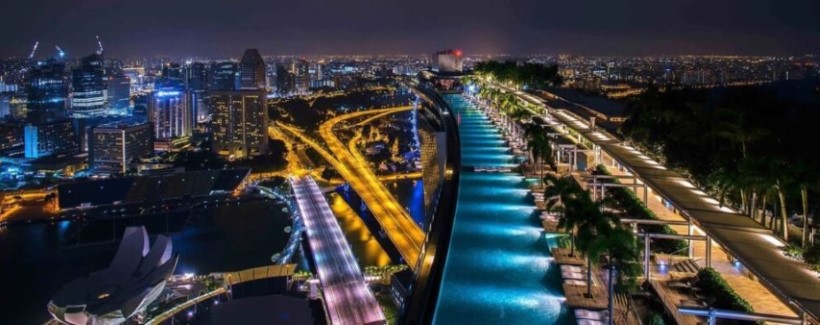Even though visitors may find the gaming scene in Hong Kong appealing, the restrictions are extremely rigorous. The gloss and glamour of casino entertainment, which is surrounded by brilliant lights and cutting-edge technology, obscures the reality of severe limitations that only enable specific operators to run a business.
Even if that were the case, it would not be illegal for local or overseas operators to supply their services to Hong Kong residents. Understanding the history of gambling in the area helps to give a clear picture of how and why the industry operates as it does today. At first glance, the legislation may appear to be convoluted; nonetheless, this helps give a clear picture of how and why the industry operates as it does today.
Gambling has been illegal in China since the Communist Party assumed power in 1949, which is important to remember given Hong Kong’s location within China. Hong Kong is a province of China. Aside from a slew of strict rules, it was also unlawful for citizens to engage in any form of gambling activity, and nationals were barred from operating any associated companies outside of the country.
The government did not want its inhabitants to gamble in surrounding communities, believing that permitting them to create casinos “next door” would be damaging to their influence. Participants and illegal operators alike faced severe prison sentences and huge fines if they did not follow the rules. Even today, players in Hong Kong face up to nine months in prison for violating the law, while operators face up to seven years in prison for violating the legislation.
Because there are already a huge number of casinos operating within the boundaries of the law in Hong Kong, it is apparent that gambling restrictions have evolved. The Gambling Ordinance, which controlled gambling in Hong Kong and became legislation in 1977, served as the impetus for all following revisions. Gambling as a form of amusement and enjoyment has been legal since that time, as long as it is done by the regulations that have since been implemented. Despite this, gambling in a social context is still illegal.
Let us now travel back in time to 1884, when the Hong Kong Jockey Club (HKJC) was founded as a benevolent institution. Over the years, the group has contributed financially to community initiatives and assisted with tax payments. Even now, eighty percent of its revenues are directed toward similar causes.
The HKJC became an official gambling establishment the year Hong Kong passed the gaming ordinance. This empowered it to directly run three types of legal gambling in the region: horse race wagering, football/soccer betting, and Mark Six Lottery tickets. This is why the HKJC has played such an important part in gambling history. However, Mahjong, a game that mixes skill, strategy, and chance, was not included in the list of rights.
In layman’s words, the Hong Kong Jockey Club regulates all types of gambling except mahjong, which can still be played lawfully thanks to an exemption that allows mahjong schools to operate this type of betting in licensed facilities. Of course, we cannot call these places “schools.” The name derives from the legal limits that made it difficult for gambling companies to obtain a license. This is also the source of the name’s inspiration.
However, because education is not regarded as a “business,” this problem has been mostly disregarded since 1956. Players were finally allowed to enjoy casino entertainment without needing to conceal their identity, resulting in considerable financial gains for the casino’s two owners. Regrettably, poker, blackjack, and slot machines remain prohibited in this facility.
Online gambling is subject to the same severe controls as in Hong Kong. However, bets can be placed through racing clubs, sportsbooks, and monopolies managed entirely by the HKJC. For legal reasons, offshore casinos are also not permitted. Due to the strict rules, those who want to participate in a wider range of gaming activities must go to Macau, which is widely considered the world’s gambling capital. Moreover, even though Hong Kong is foregoing income potential that may be brought about by internet gambling, the government is resolute about reducing the risks that can be brought about by having “too much freedom.”
The ubiquity of illegal gambling in Hong Kong has resulted in an alarmingly large number of people suffering from addiction disorders, which has led to an increase in crime, debt, and other types of social damage. During the pandemic, the severity of this problem increased, and as a result, the government had no choice but to continue enforcing restrictions and pursuing illegal business owners and operators.
Because most people are unable to secure a license to legitimately operate casinos, many of them instead run illegal betting sites and engage in other underground gambling activities. Dissatisfied with the game selection supplied by legitimate operators, players quickly register on offshore sites and engage in illicit casino operations, causing economic imbalances.
It is not only dangerous for Hong Kong residents to register on offshore sites that may operate without a license, but it also bears the risk of legal ramifications for those who do so. Even though it is impossible to prohibit players from indulging in illegal online gambling, there is a way to direct them to offshore casinos that offer a fair gaming experience to foreign casino enthusiasts.
Websites like Casinority offer tips and reviews to help gamblers avoid being taken advantage of by unscrupulous operators. This is true not only in Hong Kong but also throughout the world. Illegal gambling is not recommended. However, if it is done in violation of the existing regulations, it is critical to exercise caution while selecting a platform. You may find the most reliable online casinos in Hong Kong (alternative Chinese page:) with the help of casino city’s skilled professionals!

